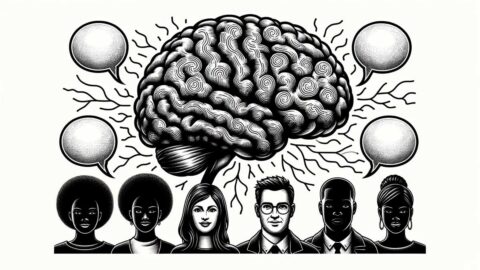We often think of quotes as nuggets of human wisdom encapsulated in a sentence or two. However, the use of quotations is not exclusive to human languages. The world of computer programming and mathematical formulas also uses a unique form of “quotation,” albeit in a significantly different context. In this article, we’ll delve into the fascinating subject of quotes in non-human languages and explore how this concept parallels or diverges from its use in human communication.
The Role of Quotes in Programming Languages
In computer programming, quotes are used to define strings of text that the program will manipulate or display. Just like in English, where quotes indicate that the enclosed words are a statement or phrase to be taken as a unit, programming languages use quotation marks to define what is called a “string.”
Examples:
- Python
my_string = "Hello, World!" - JavaScript
const myString = 'Hello, World!'; - Java
String myString = "Hello, World!";
These examples demonstrate the versatility of quotation marks in defining textual data across multiple programming languages. It’s like the programmer saying to the computer, “Take these characters exactly as they are and treat them as a single unit.”
Quotes in Mathematical Formulas
Mathematics also uses a form of quoting, although it’s not in the literal sense. Consider formulas that represent general principles; these could be seen as the “quoted wisdom” of the mathematical world. For example, Einstein’s famous equation E=mc2 can be thought of as a “quote” that encapsulates a profound truth about the relationship between energy, mass, and the speed of light.
Parallels and Differences with Human Language
Parallels
- Integrity of the Unit: Just like quotes in human language preserve the integrity of a phrase or sentence, quotes in programming and mathematical formulas maintain the integrity of strings or equations.
- Information Transfer: Both forms serve as a method of transmitting information accurately.
Differences
- Literal vs. Conceptual: While quotes in human language often capture abstract concepts or emotional states, quotes in programming are far more literal and functional.
- Context: In human language, the meaning of a quote can significantly change based on context. In contrast, a string in programming or a formula in mathematics has a fixed, unchanging meaning.
Quotation marks in programming languages and the concept of quoting in mathematical formulas show that the idea of capturing and conveying information is not unique to human communication. While the use of quotes in these non-human languages serves a more functional purpose, the underlying principle remains the same: to preserve and transmit information accurately. It’s fascinating to consider how this simple yet powerful concept transcends the boundaries of language, species, and even disciplines, making it a truly universal idea.








